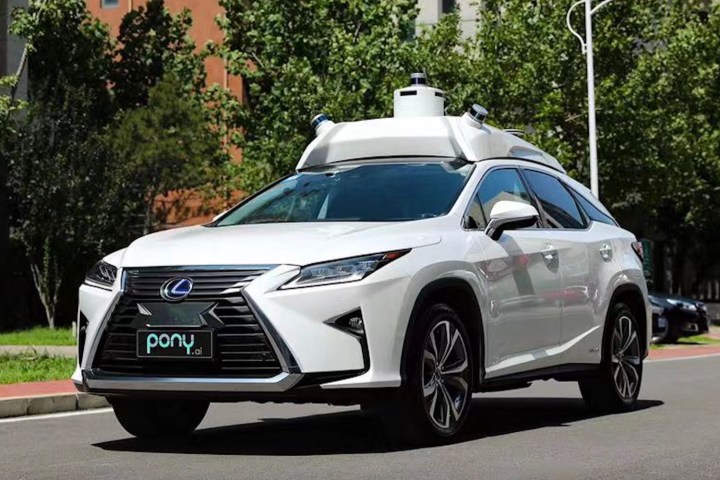
In the world of self-driving cars, team-ups are becoming the norm. Toyota is developing autonomous cars in-house, but it’s also working with Uber, and has now forged an alliance with an autonomous-driving startup from China. Pony.ai will work with Toyota to continue to develop of autonomous-driving tech, and find commercial uses for it.
The goal of the partnership is to “provide safe mobility services for all” using autonomous cars, according to a Pony.ai press release, but neither company provided any further details. Pony.ai released a photo of a Lexus RX — from Toyota’s luxury brand — modified with autonomous-driving hardware, and Automotive News reports this vehicle will be tested on public roads in Beijing.
Pony.ai has operated a pilot ridesharing program in Guangzhou since 2018, giving rides to the public in its prototype self-driving cars. In June, the startup received a permit to test autonomous cars on public roads in California, but neither Pony.ai nor Toyota have discussed any specific plans for stateside tests under their partnership.
When it comes to self-driving cars, Toyota has many irons in the fire. The automaker previously struck a deal with Chinese tech firm Baidu to contribute to the latter’s open-source autonomous-driving software platform, Apollo. Toyota is also investing in Uber’s self-driving car program, and has discussed a joint test program using modified Sienna minivans.
Toyota also has its own in-house autonomous-car development program, which seems to be trying to do many different things at once. Toyota is working on a system called Guardian that acts as a safety backup to human drivers, but it’s also developing tech designed to replace not just human drivers, but privately-owned cars entirely. The e-Palette is a boxy electric vehicle that can be used for both ride-sharing and delivery services. First seen at CES 2018, the e-Palette will make an appearance at the 2020 Tokyo Olympics, albeit with a human operator on board. Toyota has recruited other automakers to continue development of the e-Palette.
With automakers and large tech companies heavily invested in self-driving cars, it makes sense for smaller firms to seek benefactors. Cruise was acquired outright by General Motors in 2016, while Apple recently bought Drive.ai, and Argo.ai now enjoys the backing of Ford.
Editors' Recommendations
- Waymo robotaxi attacked and set on fire in San Francisco
- Cruise woes prompt production halt of fully driverless van
- Dubai Police to deploy driverless patrol cars with AI smarts
- Cruise autonomous vehicle drives over woman just after she was hit by another car
- Cruise says it’s nearing approval for mass production of futuristic robotaxi

